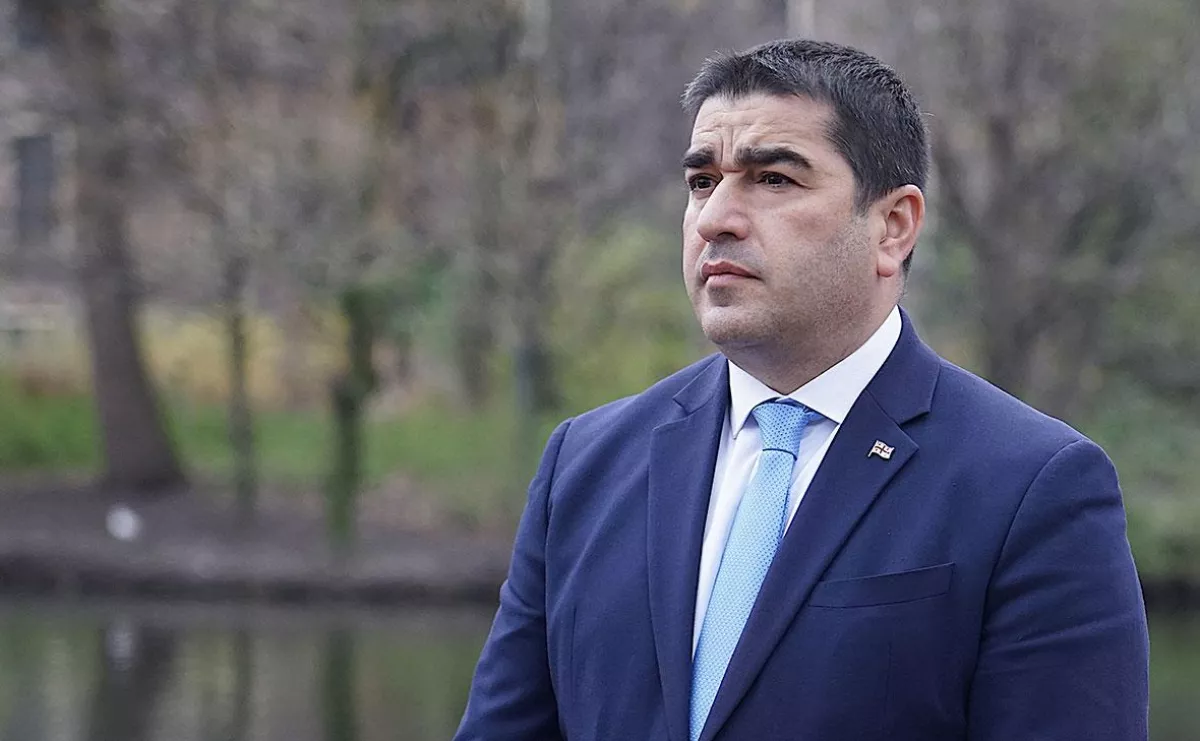Blackmail in the name of democracy EU escalates pressure on Georgia
The session of the EuroNest Parliamentary Assembly in Yerevan demonstrated that the leadership of the EU and the European Parliament has no intention of tolerating the “disobedience” of the Georgian authorities. The resolution of EuroNest, published on 30 October 2025, accuses the Georgian leadership of a “democratic backsliding” and repeats previous ultimatum-like demands from Brussels, including the issue of LGBT rights—a matter fundamentally unacceptable to traditionally minded Georgian society but actively promoted by liberal European politicians.
“Recent developments in Georgia have demonstrated a serious democratic backsliding, including the rigged parliamentary elections of 26 October 2024, the government's announcement on 28 November 2024 to delay EU accession talks until 2028, and the subsequent implementation of a series of anti-democratic legislative acts aimed at silencing all possible dissidents' voices, particularly from civil society, academia, and independent media and independent media, attacking minorities, in particular the LGBTI+ community, and eliminating viable democratic political opposition,” the EuroNest resolution states.

The document also contains a demand that the Georgian authorities immediately release “all political prisoners,” specifically naming “Sakharov Prize Laureate Mzia Amaglobeli.” In this way, through EuroNest, the European Parliament has effectively raised the stakes in its pressure on Georgia, leaving little room for compromise.
Georgian Parliament Speaker Shalva Papuashvili reacted strongly to the EuroNest resolution, announcing the country’s parliamentary delegation would no longer participate in the assembly due to the European Parliament’s “hostile approaches.” According to him, EuroNest has become an instrument of blackmail and the imposition of a narrow political agenda. Papuashvili emphasised that a return to dialogue is only possible once the European Parliament creates conditions for constructive engagement.
“Some Members of the European Parliament, known for their hostile, unfair, and politically biased stance towards Georgia, have added notes to the texts of the resolutions that are completely unacceptable and offensive to Georgian society. In particular, one resolution described the 2024 parliamentary elections as ‘rigged’ and the government elected by the people as ‘self-proclaimed.’
The resolution also labels individuals who carried out attacks on police officers and state institutions as ‘political prisoners,’ thereby completely disregarding the principles of the rule of law. It is evident that the European Parliament has turned the EuroNest platform into an instrument of blackmail against neighbouring countries and the imposition of its narrow political agenda. It is utterly unacceptable for EuroNest to ignore the will of the Georgian people and, acting beyond its mandate, to unilaterally nullify elections and democratic institutions of its member states.

Accordingly, given the hostile and narrowly partisan approaches of these forces in the European Parliament, Georgia’s standing parliamentary delegation will not participate in future EuroNest sessions,” the Georgian Parliament Speaker stated.
Notably, at EuroNest in Yerevan, instead of representatives of Georgia’s official delegation, the floor was given to the most radical leaders of the pro-Western opposition, in particular Tina Bokuchava, Chairperson of the United National Movement party.

“Today in Georgia, once known for its reforms and democratic transformations, there are more political prisoners per capita than in Putin’s Russia itself. Most political leaders are in prison, the largest opposition parties have been banned under a sham constitutional process, peaceful protesters are jailed simply for carrying the European flag, draconian laws and mass terror have effectively made civil society activity illegal, journalists have become targets, and now, in the latest wave of repression, the regime is targeting higher education institutions to control academic circles, suppress criticism, and stifle dissent,” Bokuchava added.
In what seemed like a response to this “appeal” from the Georgian opposition leaders, EU Commissioner for Enlargement Marta Kos indicated that Brussels intends to take an increasingly tough stance towards the Georgian authorities. At the same time, she acknowledged that the EU had made mistakes in its relations with both the United Kingdom, which left the bloc after Brexit, and Georgia.
“When the UK decided to have a referendum, the attitude of the European Union has been it's their internal affair, we don't get involved. We didn't even say: 'Please could you stay?' Like Georgia, where we already knew that the interference from Russia is high, we didn't help,” Marta Kos noted.
Notably, the Commissioner places Georgia in the same category not with just any country, but with the United Kingdom—a former empire that, although it has lost its former ambitions, still defends its national interests. When London decided it would better protect its interests outside the EU, the country left the bloc. Similarly, when the EU began imposing its will on Georgia against the country’s national interests, the Georgian authorities suspended accession negotiations.

Symbolically, Georgia was once called a “small empire” by Andrei Sakharov—a noted supporter of the “Artsakh” separatists—whose namesake prize was awarded to Mzia Amaglobeli, a proponent of the same ideas. It appears that, for the European bureaucracy today, it is important to prevent the examples of the United Kingdom and Georgia—two countries of different scales but equally determined to defend their national interests—from becoming “contagious.”
As a result, new unfriendly measures from the EU toward Georgia can be expected in the near future. In particular, the process of revoking the country’s visa-free regime with the European Union may be initiated. This issue was also raised in the EuroNest resolution, which called on the European Commission to review Georgia’s visa-free status “with the intention of suspending it for targeted groups responsible for Georgia’s authoritarian decline.”








